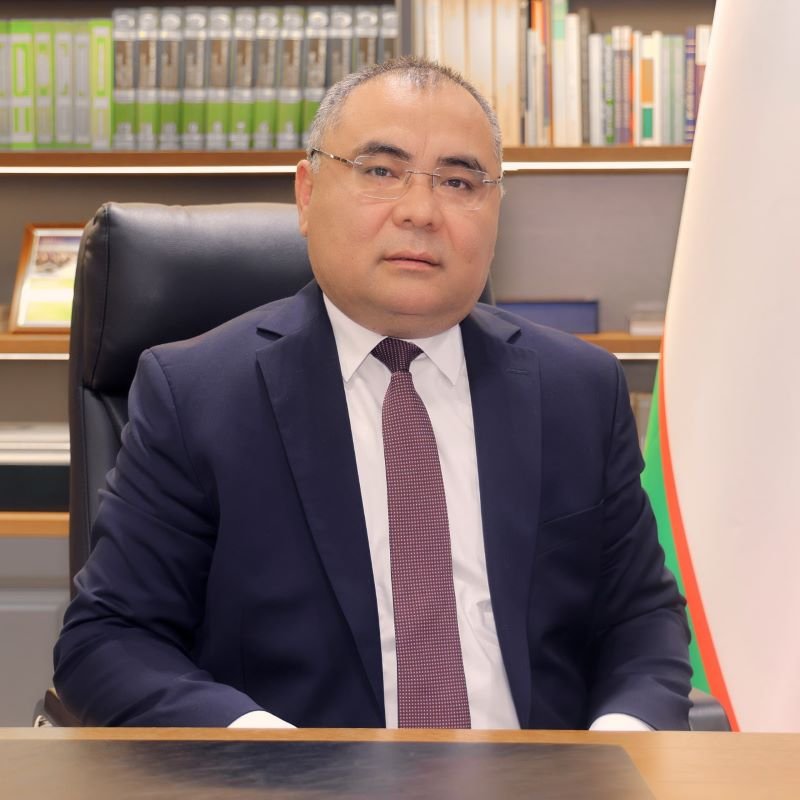Uzbekistan’s modern foreign policy is built on the principles of mutually beneficial partnerships and pragmatic cooperation. This approach is particularly evident in initiatives aimed at ensuring food security, enhancing research capacity, introducing digital technologies and developing sustainable agriculture.
From this perspective, cooperation between Uzbekistan and Mongolia in the agricultural sector has recently gained new depth and scale. While the history of these ties is relatively short, they are marked by effectiveness, a wide range of areas, and strategic importance.
Agricultural Partnership Based on Strong Political Will
As a result of high-level meetings held on June 24, 2024, a number of important documents were signed. In particular:
- Agreement between the Ministry of Agriculture of Uzbekistan and the Ministry of Food, Agriculture and Light Industry of Mongolia on cooperation in agriculture and food production.
- Agreement on cooperation in the field of veterinary medicine and livestock farming.
- Draft of a new document on phytosanitary cooperation.
These documents laid a solid legal foundation for bilateral cooperation. Based on this legal platform, opportunities have opened up for the implementation of joint initiatives in trade, science, technology, and innovation.
A New Stage in Livestock Development
Mongolia is known for its centuries-old traditions of animal husbandry and a rich genetic pool. Uzbekistan, in turn, aims to breed productive livestock adapted to the climate of mountainous and arid regions. As part of a project to import 100,000 sheep and goats from Mongolia, the first batch of 7,100 animals has been delivered.
Read More: Turning Green: Uzbekistan’s 2025 Drive for Environmental Protection
They successfully adapted to Uzbekistan’s climate, and their population has increased to 13,000. These results are significant for enriching the local livestock gene pool, increasing the production of milk and meat, and enhancing export potential.
In addition, scientific projects have been launched to adapt pastures to climate change and improve the fodder base.
Science and Education – the Foundation of Cooperation
Within the framework of academic cooperation between Tashkent State Agrarian University and the Mongolian University of Life Sciences, agreements have been signed to exchange students, lecturers, herders, and specialists.
Joint scientific projects have also been established between Uzbekistan’s National Knowledge and Innovation Center for Agriculture (AKIS) and the Mongolian Academy of Agricultural Sciences in the fields of plant breeding, vegetable production, seed development, and other areas. This is a model of long-term partnership that will serve the integration of science and practice in the future.
‘Garden of Friendship’ – a Symbolic Partnership in Vegetable Production
Mongolia has great potential in vegetable cultivation, yet due to climate conditions and infrastructure limitations, this potential is not fully realized. Therefore, Uzbek varieties of tomatoes, cucumbers, peppers, watermelons, and melons are currently being tested under Mongolian conditions.
Based on seeds sent from Tashkent, experimental fields have been established. Breeding work is being carried out using in vitro technologies. This forms the basis of a joint cultural and scientific platform called the “Garden of Friendship.”
Water Issues – The Need for Knowledge Exchange
Mongolia annually cultivates about 1 million hectares of land, but only 10% of it is irrigated. The main reason is the lack of irrigation infrastructure.
There is great interest in Uzbekistan’s centuries-old experience in irrigation, especially drip irrigation technologies, sensor-based control, and remote monitoring. In this regard, the Mongolian side has allocated experimental plots and invited Uzbek specialists.
Digital Transformation – a New Level of Collaboration
The Ministry of Digital Development of Mongolia has shown significant interest in more than 20 digital platforms developed in Uzbekistan, including “Agrosubsidy”, land resource management, subsidy monitoring, and GIS-based platforms.
Plans include the introduction of these platforms in Mongolia, the exchange of programmers and technical experts, and the launch of joint IT projects and startups.
Growth in Trade and Economic Relations
Trade relations between Uzbekistan and Mongolia are steadily expanding. By the end of 2024, mutual trade turnover reached $8.8 million, which is a 29% increase ($2 million) compared to 2023. Export volume amounted to $3.7 million (up by $0.4 million), while imports reached $5.1 million (an increase of $1.6 million).
Confectionery products account for 55% of Uzbekistan’s exports to Mongolia, while meat products dominate imports, representing 83% or $4.3 million.
Read More: All You Need to Know About Uzbekistan’s Golden Visa
These figures reflect the mutual demand of both countries for agro-industrial goods. Uzbekistan demonstrates competitiveness in food products, particularly processed confectionery items. Mongolia, in turn, showcases its traditional strength in meat production and export.
Cooperation in Aquaculture, Sericulture, and Beekeeping
Mongolia’s natural cold-water resources and Uzbekistan’s experience in intensive aquaculture complement each other. Joint projects are planned based on artificial water bodies and intensive fish farming technologies.
Agreements have also been reached on the exchange of breeding material in beekeeping, export of honey products, and cultivation of mulberry seedlings and silkworms in sericulture.
Today, agricultural cooperation between Uzbekistan and Mongolia serves not only economic interests but also science, environmental safety, and food stability. Each initiative on this path is an investment in the future of both nations.
We are committed to strengthening and deepening this partnership for many years to come. Because where there is cooperation, there is progress. Where there is science, there is blessing.

Ibrokhim Abdurakhmonov
Ibrokhim Abdurakhmonov is the Minister of Agriculture of Uzbekistan.



